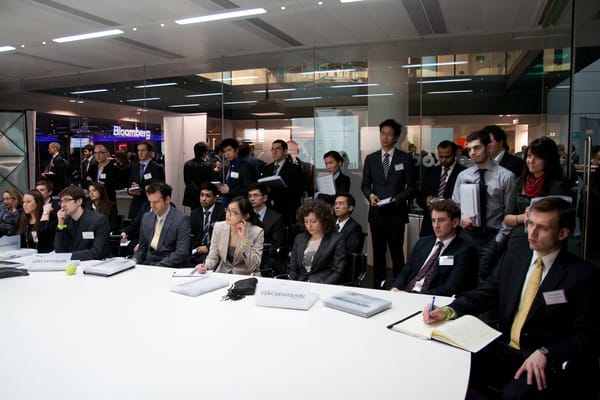How they started up: introducing a week of interviews with real entrepreneurs
This week, Felix interviews three innovative businesses about their experiences

Throughout the year, largely due to reader interest, the business section has a strong emphasis on finance. This fits with many Imperial students’ desire to learn more about the industry, in order to stay informed and help with their career choices. This being an undergraduate newspaper, this seems an appropriate enough use of the business pages.
However, many people who spend their time at university convincing themselves that a career in finance is the only option never quite shake off the ideas they once had about starting up their own business. These ideas are invariably more exciting than anything they might be doing in a bank or accountancy firm.
With that in mind, this week there will be stories about real world businesses that are doing interesting things in new ways. The aim is two-fold. The first is to see what motivated them to take all of the risks of starting up a new company. The second is to learn about the potential pitfalls, things to avoid and things that cannot be avoided.
The first story will be that of PathMotion, a careers website with a difference. We have all heard anecdotes of how people tried different types of jobs and learned something new from each that they then used in their subsequent positions. PathMotion uses the real-life experiences of thousands of professionals in its career trajectory algorithms to turn these anecdotes into evidence-based guidance for its users.
PathMotion was set up in 2009 by David Rivel, whose career started in financial management at General Electric and has worked as a strategy consultant for Boston Consulting Group. Afonso Costa Campos talked to David about his business philosophy, and the most difficult and enjoyable aspects of starting up a new venture. Read the interview tomorrow.
In Wednesday’s issue, Afonso interviews Foster London, a very cool hair and beauty salon set up by Nadia and Drew Foster, who are not only siblings, but also both award-winning hair stylists. Their salon aims to set new standards for customer service and even has a cocktail bar.
Nadia and Drew both previously worked at high end salons and so had a very difficult decision to make when they were first thinking of starting up on their own. Read the interview to find out what drove them to take such a big risk with their already-glittering careers.
James King, founder and CEO of Find Invest Grow, gave his first Felix interview in October 2009, when he had just started his student-focused venture capital firm. At that time, the company had only one fully developed business under its wings. That was SpineStrength, then a machine that helped rugby players train for the scrum. It was started by Doug Higgins, who had the idea whilst at Imperial, playing in the College rugby team. Doug used some of his student loan to get his idea off the ground. Today, SpineStrength is a multi-million pound business that sells a full range of gym equipment to gyms and sports clubs around the country.
James’s company has grown at a similarly rapid rate. Although SpineStrengh remains his firm’s most successful venture, he now has fourteen other companies, all of them profitable, that he hopes to make just as successful as SpineStrength.
In Thursday’s issue, James King discusses why he decided to give up a lucrative career as a management consultant with a leading financial services firm to start up his own venture capital firm. Being a recent start-up itself, Find Invest Grow comes across as being more sympathetic to students that look to it for funding.
James says that he focuses on students because they have the right research skills to turn interesting ideas into profitable ones. Read the interview for more on James’s advice to students seeking his firm’s investment, what he thinks of the new coalition government, and much more, including gossip on the Dragon’s Den dragons.
What came out from all of these interviews was the incredibly unpredictable nature of real businesses, and how it is up to the entrepreneur to make things happen. This is very far removed from the economic models that drive government policy making. Price uncertainty is not helpful to anyone, and neither are sticky wages, but not one of the entrepreneurs cited central bank-driven inflation as a solution. Instead the complaints were of too many regulations involved in the hiring and firing process.
Often this means that firms cannot take on new staff as readily as they would like, for fear of regulatory problems down the road. At a time of high unemployment around the world, it is easy to see how such obstacles are less than welcome. But there was also a strong sense of optimism underlying all of the interviews.
Asked whether he feared a double dip recession, James King for example said that he never experienced a recovery in the first place. But he was quick to point out that he would be more than happy to recommend starting up a new business even in the midst of such difficult economic times. And what about his concerns for students whose ideas do not turn out as well as his own? “What’s the worst that can happen? You go bankrupt. At your age, how bad is that, really?”






